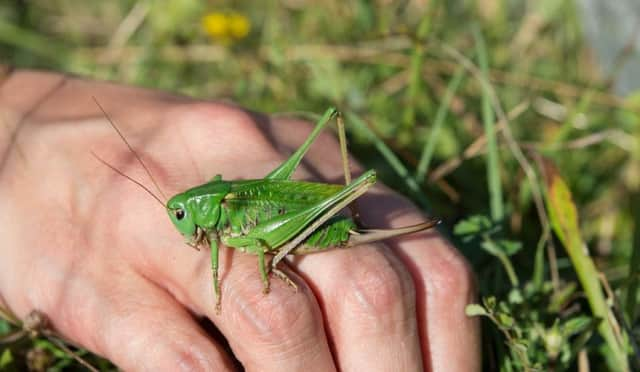Bowled over about crickets as wart-biter flourishes on downs


Working alongside Natural England, Buglife, the Zoological Society of London and the South Downs National Park Authority, South East Water carried out its third release of the rare species last year.
Now, following two recent surveys, 14 new crickets have been found in the area.
Advertisement
Hide AdAdvertisement
Hide AdIt has taken more than 20 years to create a home for the crickets around the company’s Deep Dean Water Treatment Works at Litlington, as the fussy creatures need a particular kind of habitat which includes bare ground, short turf and taller clumps of grass.
The wart-biter cricket is endangered in the UK and the threat they could die out remains, but thanks to the team’s hard work and perseverance the cricket now has a brighter future breeding on the South Downs.
South East Water’s Biodiveristy Lead, Richard Dyer, said: “We have worked in partnership with other organisations and individuals over a long period of time to make this a success and we are all very pleased to be playing a part in saving the cricket.
“The reintroduction programme was recently nominated for an accolade at the annual Chartered Institute of Ecology and Environmental Awards and we were delighted to be highly commended for our hard work.
Advertisement
Hide AdAdvertisement
Hide Ad“This year the plan is to continue with the programme, providing it’s another good year for wart-biters at the donor site in Castle Hill National Nature Reserve on the South Downs.”
Natural England’s Senior Invertebrate Specialist, Jon Curson, added: “The wart-biter is one of our most threatened insects and Natural England has been working hard to aid its recovery.
“We are proud to have worked with South East Water, Buglife, the Zoological Society of London and the South Downs National Park Authority on this project and we are particularly pleased that South East Water has managed to turn chalk grassland at Deep Dean into a perfect habitat for the crickets, allowing us to establish a population here.”
The wart-biter derives its name from the age-old practice of using the cricket to bite warts from the skin.